
SYNTHESIS
A series in the history of chemistry, broadly construed, edited by Angela N. H. Creager, Ann Johnson, John E. Lesch, Lawrence M. Principe, Alan Rocke, E.C. Spary, and Audra J. Wolfe, in partnership with the Chemical Heritage Foundation
The Secrets of
ALCHEMY
LAWRENCE M. PRINCIPE
The University of Chicago Press
Chicago and London
Lawrence M. Principe is the Drew Professor of the Humanities in the Department of the History of Science and Technology and the Department of Chemistry at Johns Hopkins University. His books include The Scientific Revolution: A Very Short Introduction and Alchemy Tried in the Fire: Starkey, Boyle, and the Fate of Helmontian Chymistry, the latter coauthored with William Newman and published by the University of Chicago Press.
The University of Chicago Press, Chicago 60637
The University of Chicago Press, Ltd., London
2013 by The University of Chicago
All rights reserved. Published 2013.
Printed in the United States of America
22 21 20 19 18 17 16 15 14 13 1 2 3 4 5
ISBN-13: 978-0-226-68295-2 (cloth)
ISBN-13: 978-0-226-92378-9 (e-book)
ISBN-10: 0-226-68295-1 (cloth)
ISBN-10: 0-226-92378-9 (e-book)
Library of Congress Cataloging-in-Publication Data
Principe, Lawrence, author.
The secrets of alchemy / Lawrence M. Principe.
pages cm (Synthesis)
Includes bibliographical references and index.
ISBN-13: 978-0-226-68295-2 (hardcover : alkaline paper)
ISBN-10: 0-226-68295-1 (hardcover : alkaline paper)
ISBN-13: 978-0-226-92378-9 (e-book)
ISBN-10: 0-226-92378-9 (e-book)
1. AlchemyHistory. 2. Alchemists.
I. Title. II. Series: Synthesis (University of Chicago Press)
QD13.P75 2013
540.1'12dc23
2012010213
 This paper meets the requirements of ANSI/NISO z39.48-1992 (Permanence of Paper).
This paper meets the requirements of ANSI/NISO z39.48-1992 (Permanence of Paper).
CONTENTS
INTRODUCTION
WHAT IS ALCHEMY?
Although alchemys glory days came to an end roughly three centuries ago, the Noble Art endures in many ways. The very word alchemy conjures up vivid images of the hidden, the mysterious, and the arcane, of dark laboratories and wizard-like figures bent over glowing fires and bubbling cauldrons. Today, most people have heard something about the Philosophers Stone, the substance capable of turning lead into gold that was so eagerly sought by legions of alchemists. Indeed, an entire generation became acquainted with the stone and one of its supposed possessors, the medieval Parisian notary Nicolas Flamel, by means of the first of J. K. Rowlings wildly successful books: Harry Potter and the Philosophers Stone. (Regrettably, American publishers corrupted the substances ancient name into the meaningless Sorcerers Stone. Alchemy has not always gotten the respect it deserves.) The sixteenth-century Swiss alchemist Theophrastus von Hohenheim, better known as Paracelsus, recently found new life as Hohenheim of Light in the Japanese manga and anime series Fullmetal Alchemist, which makes copious if highly sensationalized use of alchemical concepts. Trading on the link between alchemy and transformation, many modern books have alchemy in their title, thereby renewing alchemys modern presence virtually every year. Such titles range from Paul Coelhos 1988 best-selling novel The Alchemist to more trite borrowings of the term as The Alchemy of Love and The Alchemy of Finance, to the more imaginative American Alchemy: The History of Solid Waste Management in the United States. The alchemical theme of transformation is also responsible for the frequent appearance of the term in various self-help programs.
Besides these manifestations of variously transformed versions of alchemy, a perhaps surprising number of people throughout the world are continuing to search for practical metallic transmutation, despite rather discouraging prognostications from modern chemistry, often more or less in the same ways it was pursued centuries ago. Some such modern seekersI know from personal experienceeven hold positions in university departments. Alchemy thus continues to exist in a variety of guises and disguises.
But much of the modern worlds familiarity with alchemy is more apparent than real. While the mystique of the subject naturally attracts interest, its inherent difficulty and complexity easily deflect attempts to understand it. Arriving at solid, satisfactory conclusions about alchemy can seem as difficult as finding the Philosophers Stone itself. Alchemys primary sources present a forbidding tangle of intentional secrecy, bizarre language, obscure ideas, and strange imagery. The alchemists did not make it easy for others to understand what they were doing. Secondary sources about alchemy, whether books or websites, are frequently even more problematic, for they soon plunge the reader into a maze of conflicting claims and contradictory assertions. The historically informed works readily available today range from excellent scholarly publications (which naturally presuppose considerable expertise) to introductory but now outdated overviews.the most intrepid seeker to emerge from such a labyrinth with any clear or sound conclusions about the true nature of alchemy.
So what is alchemy? Who were the alchemists, and what did they believe and do? What were their goals, and what did they accomplish? How did they envision their world and their work, and how were they seen by contemporaries? These are the main questions I explore in the following pages.
My goal is to provide a reliable guide to the various secrets of alchemy. A comprehensive history of the subject not only would run to unreadable length but also would be premature, since scholars still have much to learn about it. I present instead only an introduction that can serve as a solid foundation for further inquiry. My chief motivation, then, in writing this book has been to make some of the enormous wealth of recent discoveries about alchemy accessible to a wider audience. While alchemy has always been considered secret and privileged knowledge, perhaps the best-kept alchemical secret of our day is how radically our understanding of the subject has changed during the last forty years. Alchemy is now a hot topic among historians of science. Books and manuscripts that have lain unread for centuries are now being read again, and their contents more accurately understood in historical context. We are learning more about alchemy every day. Yet much of this new information has remained inaccessible to most readers, because it is published in specialist literature and in multiple languagesmore often than not in languages other than English. The result has been that most popular writing about alchemy repeats the same mistaken notions over and over again, perpetuating errors that were satisfactorily and convincingly corrected in the scholarly literature as much as eighty years ago. I believe that interested readers deserve much better.
I wrote The Secrets of Alchemy to function on two levels. In the main body of the text, I keep the nonspecialist, the general reader, and the student in mind. No prior knowledge of alchemy or specialized knowledge of the history of science is necessary to understand it. Some familiarity with chemistry will help in been so pedantic as to list every source available on each topic; I have instead chosen only the best and most pertinent. My apologies to scholars whose relevant works I have not yet encountered; I would be delighted to receive references or offprints.
Next page

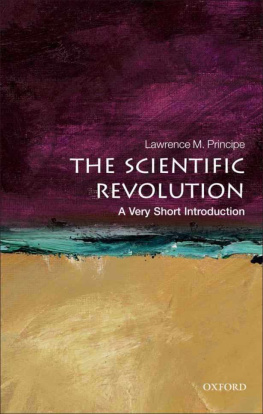
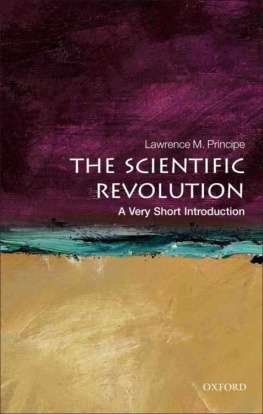
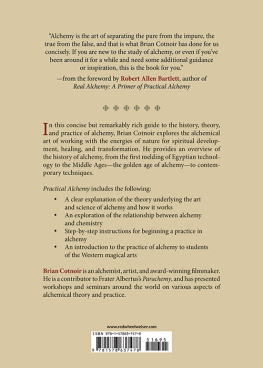

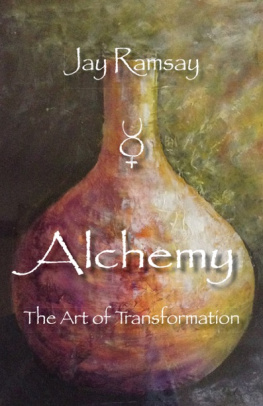
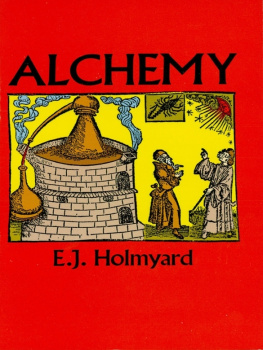
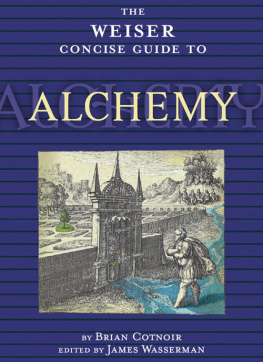
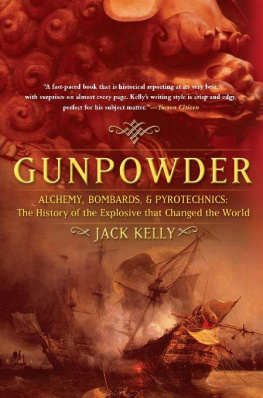
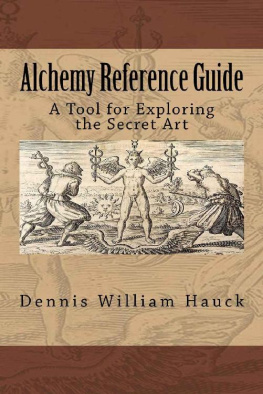
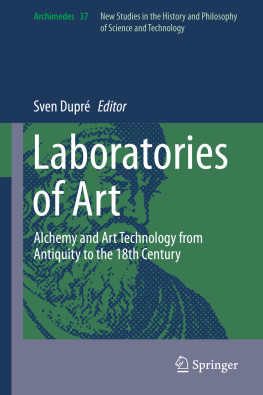
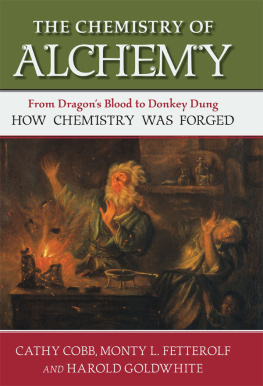
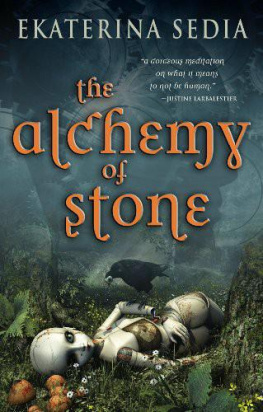

 This paper meets the requirements of ANSI/NISO z39.48-1992 (Permanence of Paper).
This paper meets the requirements of ANSI/NISO z39.48-1992 (Permanence of Paper).